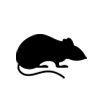This review was commissioned by Fairfax in July 2019.
On one level, Kirsten Warner’s The Sound of Breaking Glass is about a first-time author trying to figure out whether she’s entitled to write a book. As with so many first novels, it’s deeply autobiographical and includes writing about writing: “The only stories I can think of writing involve me, which doesn’t count.” Usually this kind of hand-wringing navel-gazing would put me off, but The Sound of Breaking Glass is something special.
We meet the book’s protagonist, Christel, as she’s spraining her ankle while rushing to drop the kids off before getting the bus to her job in reality TV. Someone on the bus who no one else can see is jeering at her. “He’s like my own critical voice, always going blah blah blah. The Big Critic. The Big C.” It’s our first hint of the expansiveness of Christel’s inner life; of the ways in which the forces shaping her psyche are so huge and demand so much attention that they warp the world around her. Big C follows Christel everywhere, changing shape and size, shouting warnings and hissing insults.
It is clear that something has to give: “I feel like I might leak out of my skin.” The whatever-it-is that’s inside Christel is coming in between her and her ‘real’ life. She is only able to call those closest to her by their names; everyone else is relegated to a cartoonish nickname: Fat Controller, Celebrity Yoga Teacher, Doll-Maker, Car Couple.
The action of the novel is split between the 1990s and Christel’s childhood in 1970s Auckland. Christel’s father Conrad was a German Jew who survived the Holocaust and passed some of the wounds from that trauma on to his daughter in ways neither of them understand. Christel also has trauma of her own – readers should beware that The Sound of Breaking Glass contains scenes of rape. The pain Conrad and Christel both feel is compounded by their inability to share their suffering.
There is a deep sense of struggle throughout this book. Christel’s emotional pain and inherited trauma wrench themselves out of the depths of her subconscious and embody themselves in the ‘real’ world in order to demand that she address her psychological needs. At one point Christel builds a large male figure out of old milk bottles as part of a protest against the use of surplus plastic. He starts out as a sculpture that others can see but then becomes Milk Bottle Man; a surreal character like Big C who acts independently of Christel. He starts expressing Christel’s tectonic anger, tracking down a man who assaulted her and writing ‘RAPIST’ in red paint on his house. “Somehow I’m making it happen but I don’t know how.”
The Sound of Breaking Glass is a book I had to read slowly and in several stages. There is a pervasive sense of dread and danger throughout, and I came to understand that Christel’s various psychological manifestations are part of her self-defensive coping strategy. Her reality is awful, so she slightly removes herself from it. “There were hooks and eyes in the air around us, hidden zipper teeth I couldn’t see.” But the reality of being a second-generation Holocaust survivor cannot be eluded forever. “I’ll never be normal and I’ll never be free … if I could write I would write them all to death … None of the other kids had grandparents who were sent to the crematorium … it’s my job to remember, all my responsibility.”
iN 2019 The Sound of Breaking Glass deservedly won our national book award for best first book. Warner’s prose is lucid and assured, despite the repeated references in the text to feeling insecure about one’s writing ability. She manages the balance between realism and surrealism beautifully: it’s never entirely clear, for example, how much of Milk Bottle Man is ‘real’, but it doesn’t matter. There’s an essential, urgent truth at the heart of the book that supersedes such questions; and the point is well taken that the ongoing emotional toll of the Holocaust cannot be communicated without moving beyond the realm of the easily comprehensible. The Sound of Breaking Glass is an unsettling, warm, strange book, and I highly recommend it.

